#Dengue virus
Link
#Federal Government#Puerto Rico#Science and Environment#Centers for Disease Control and Prevention#Contextomy#Dengue virus#public health#Puerto Rico Department of Health
0 notes
Text
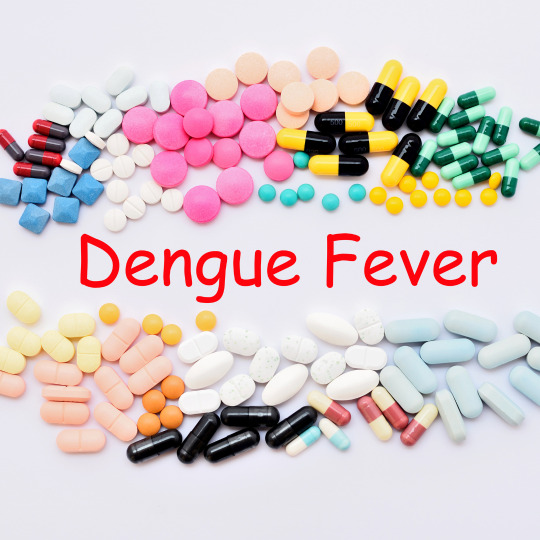
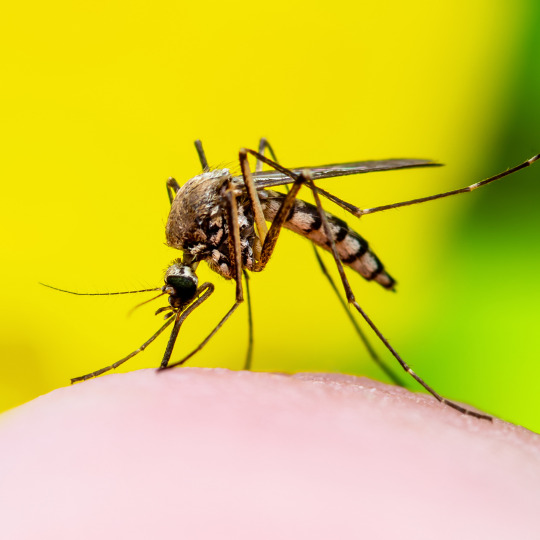
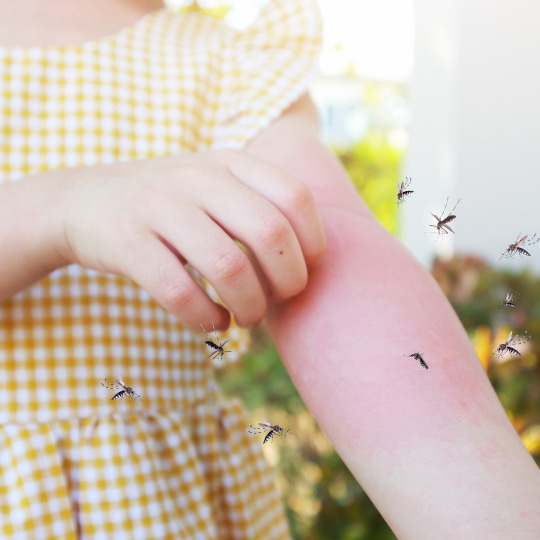
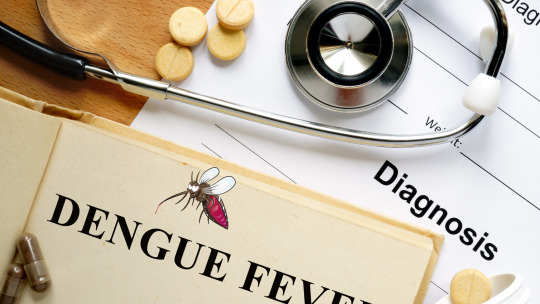
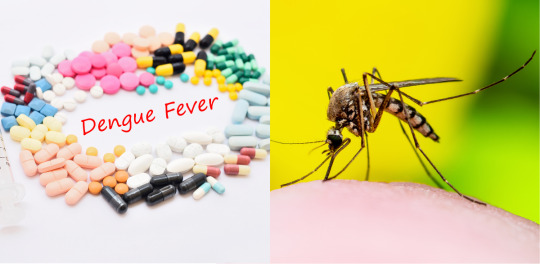
Dengue fever, a mosquito-borne illness spread by the dengue virus, presents as a severe flu-like illness with the Aedes mosquito serving as the primary vector.
#dengue fever#causes of dengue fever#dengue virus#4 stages of dengue fever#cause and effect of dengue
1 note
·
View note
Text
Dengue – Frequently Asked Questions
In recent days, Tamil Nadu has witnessed a marginal spike in dengue fever cases, affecting individuals of all ages – including Children and Adults.
This mosquito-borne infection has become a significant concern, exacerbated by various factors. One such is climate change, i.e., during the monsoon season, the outbreak of dengue is high.
Aedes mosquitoes, especially Aedes aegypti and Aedes albopictus, are the primary causes behind the spread of dengue through their bites.
Concerning this health concern, understanding its signs and symptoms, causes, diagnosis, and preventive measures is essential in mitigating its impact and preventing its spread.
Here are some frequently asked questions about dengue fever that can help you understand better.

Can Dengue Spread From Person To Person?
Dengue fever is primarily transmitted through mosquito bites, specifically those of Aedes mosquitoes. However, there are exceptional cases where the virus can be transmitted in different ways. For instance, if a pregnant woman contracts dengue, the virus can pass to her baby during pregnancy or around the time of birth. Additionally, though rare, dengue can be spread through blood transfusions.
Can Dengue Mosquito Bite At Night?
Dengue is primarily a daytime-biting mosquito-borne disease.
However, Aedes Aegypti, which is responsible for transmitting dengue stays active during peak times such as early morning (two hours after sunrise) and late afternoon (two hours before sunset).
What Is The First Sign Of Dengue Fever?
Dengue symptoms can range from mild to severe. And some individuals, especially children and teenagers, may not exhibit any signs of the disease at the earliest. Gradually the symptoms start to appear four to seven days after being bitten by an infected mosquito. In its milder form, dengue presents as a High Fever (often around 104°F) accompanied by any of the following seven warning signs:
Headache
Muscle, bone, and joint pain
Nausea
Vomiting
Pain behind the eyes
Swollen glands
Rash
In rare and severe cases, the disease can progress to hemorrhagic fever, leading to damaged and leaky blood vessels, severe bleeding, a sudden drop in blood pressure, and even death.
Can Dengue Fever Occur To The Same Person Twice?
Yes, a person can be infected with Dengue multiple times, as there are four different serotypes of the Dengue virus (DENV-1, DENV-2, DENV-3, and DENV-4).
Each serotype can cause the disease, and previous infection with one serotype does not provide complete immunity against the others. Some reinfections can result in more severe forms of the disease, particularly with the D2 strain, which is associated with symptoms like Dengue Hemorrhagic Fever and Dengue Shock Syndrome.
Immune complications may also occur in some cases, making reinfections more severe.
Do Platelets Decrease Because Of Dengue Fever?
Dengue fever can lead to a significant drop in platelet count in the bloodstream. As it affects the bone marrow, which is the site for the formation of platelets, platelet production reduces. Despite this, it can even increase the platelet destruction from peripheral blood.
These results in a condition termed Thrombocytopenia, occurring when the platelet count is low in the blood. As a result, it increases the risk of internal bleeding.
If this is the worst case, platelet transfusion may be necessary.
Can Dengue Be Prevented?
Preventing dengue primarily involves measures to protect yourself from mosquito bites and eliminate mosquito breeding sites. Here’s what you can do:
Stay in air-conditioned rooms or ensure that doors are closed if you don’t have air conditioning.
Limit outdoor activities, especially during dawn and dusk when mosquitoes are most active.
Wear protective clothing such as long-sleeved shirts and pants, to cover up the exposed skin.
Use mosquito repellent on exposed skin, and consider applying permethrin to clothing, shoes, camping gear, and bed netting.
Make your living environment free from mosquito breeding sites. Aedes mosquitoes often breed in stagnant water in items like automobile tires, air coolers, and flower vases. Regularly empty and clean these containers and keep them covered between cleanings.
Is Dengue A Fatal Disease?
The person suffering from dengue can recover completely as its symptoms can be managed by staying hydrated and taking medications as prescribed by the healthcare provider.
However, in some cases, Dengue can progress to conditions like Dengue Hemorrhagic fever and Dengue Shock syndrome. When left untreated, it can pose a risk to one’s health.
Early diagnosis, appropriate treatment, and the right medications can reduce the risk in severe cases.
How Is Dengue Diagnosed?
Early and accurate diagnosis of dengue is important for effective management and timely treatment.
When you seek medical assistance because of the concerning symptoms, the healthcare professionals will evaluate your symptoms, medical history, and recent travel history to regions where dengue is prevalent. While these symptoms can overlap with other illnesses, they provide important initial clues for diagnosis.
Followed by blood tests for dengue. This includes the following:
Antigen Test: This test identifies the presence of the dengue virus in a patient’s blood.
Polymerase Chain Reaction (PCR) Test: PCR is a molecular test that detects the genetic material of the dengue virus.
What Are The Treatment Options For Dengue Fever?
There is no specific antiviral treatment for dengue. In mild cases, patients are advised to stay hydrated to prevent dehydration and manage their symptoms with medications. However, in severe cases, hospitalization may be necessary, with treatment including intravenous (IV) fluid and electrolyte replacement, blood pressure monitoring, and blood transfusion to address complications.
When Should I Consult A Doctor?
Many people tend to overlook the symptoms of dengue fever. It’s crucial to consult a doctor if experiencing fever for more than 3 days. Never even neglect the mild symptoms; diagnose early and prevent the potential complications that arise because of dengue.
What Precautions Should Be Taken After Recovering From Dengue?
Eat a well-balanced diet with plenty of fruits and vegetables to help boost your immune system, which even helps you in the recovery phase.
Make sure to include adequate vitamins and minerals in your diet. Avoid oil and junk foods.
Hydrate yourself by drinking water, and healthy & refreshing juices.
Ensure your body gets sufficient rest to aid your recovery and regain strength.
Always follow the guidance and medications prescribed by your healthcare provider during and after the illness.
During the recovery phase, the body may still be weak, so excessive physical exertion should be avoided. Instead, walking or light exercise can be practiced.
Which Signs Include That We Are Cured From Dengue?
The patient begins to regain the lost function.
During the recovery phase, which typically occurs 7 days after the onset of Dengue, the patient’s condition gradually improves. This includes the subsiding of fever, increased urination, and a returning appetite.
In rare cases, even after crossing the recovery phase, if you encounter any of the following symptoms, seek immediate medical attention:
Decreased urination
Few or no tears
Dry mouth or lips
Lethargy or confusion
Cold or clammy extremities
Book Your Appointment with Dr Mehta’s Best Dengue Doctors in Chennai!!
To wrap it up,
Knowing more about Dengue from this FAQS article helps you make smart choices for your health and your community during times when the disease is more prevalent.
By understanding the key aspects of the disease, its symptoms, and preventive measures, you play a vital role in staying safe and contributing to Dengue prevention efforts.
Stay informed, stay vigilant, and together let’s combat Dengue effectively!!!
#dengue#dengue fever#dengue treatment#dengue causes#dengue symptoms#dengue virus#hospital#healthcare#medicine#mehta hospital
0 notes
Text
Overwhelmed By Dengue: Private Healthcare Facilities Strain To Meet The Demand – Causes, Consequences, And Solutions
Dengue fever, a mosquito-borne viral illness, continues to plague communities across the globe, with private healthcare facilities at the forefront of the battle against this relentless disease. The ever-increasing incidence of dengue cases has led to a severe strain on private healthcare providers. In this comprehensive blog, we delve into the causes and consequences of the overwhelming demand for dengue treatment and explore potential solutions to this critical healthcare crisis.
#Dengue#mosquito#Dengue treatment#Dengue virus#medication#healthcare#medicine home delivery#online consultation doctor#blood test at home#online dr consultation#full body checkup#online blood test#buy medicine online#online medicine order
0 notes
Text
Dengue Fever: Understanding the Symptoms, Prevention, and Causes
Dengue fever is a formidable viral illness that looms as a significant health threat in tropical and subtropical regions across the globe. This mosquito-borne disease, caused by the dengue virus, presents a complex and evolving challenge to public health systems and communities.
Visit Us For More Information: https://medium.com/@deepikashomeopathy4/dengue-fever-understanding-the-symptoms-prevention-and-causes-9d126dcc2858
#DengueFever#Dengue Virus#Dengue Fever in Noida#Dengue Symptoms#homeopathic store near me#best homeopathy clinic in gaur city
0 notes
Photo

"The Second Shin Jung-hwan Dengue Virus, the Nation's Oolong"...Kim Sae-ron ⁇ Yoo Ah-in, Self-Playing and Sophistry 'Bitter' Instead of Reflection
Source: k-star-holic.blogspot.com
0 notes
Text
#dengue fever#dengue#dengue fever symptoms#dengue fever treatment#dengue hemorrhagic fever#dengue fever virus#dengue fever vaccine#fever#dengue fever mosquito#dengue fever medicine#dengue symptoms#dengue fever diagnosis#dengue fever traveling#dengue fever vaccination#dengue virus#dengue fever lesson#dengue yellow fever#dengue fever infection#dengue treatment#dengue fever signs and symptoms
0 notes
Text

Climate change - the gift that keeps on giving.
99 notes
·
View notes
Text
OFHYP Chapter 3 sneak peek


#I'm at a 48 hour shift at the hospital#So the next chapter is officially a Dengue virus victim#Pray for her (me) I'm at my limit 🤗#Marecal#red queen series#My fics#OFHYP fic
11 notes
·
View notes
Text
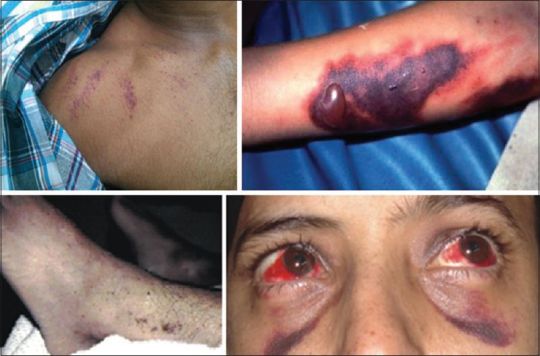
Dengue hemorrhagic fever
A rare disease caused by dengue virus which is almost asymptomatic apart from the unlikely few
9 notes
·
View notes
Text
Shifting patterns of dengue three years after Zika virus emergence in Brazil
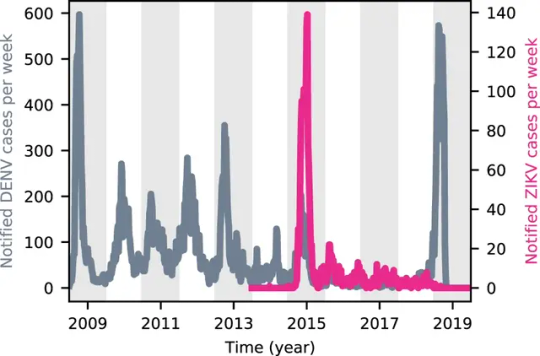
In 2015, the Zika virus (ZIKV) emerged in Brazil, leading to widespread outbreaks in Latin America. Following this, many countries in these regions reported a significant drop in the circulation of dengue virus (DENV), which resurged in 2018-2019. We examine age-specific incidence data to investigate changes in DENV epidemiology before and after the emergence of ZIKV. We observe that incidence of DENV was concentrated in younger individuals during resurgence compared to 2013-2015. This trend was more pronounced in Brazilian states that had experienced larger ZIKV outbreaks. Using a mathematical model, we show that ZIKV-induced cross-protection alone, often invoked to explain DENV decline across Latin America, cannot explain the observed age-shift without also assuming some form of disease enhancement. Our results suggest that a sudden accumulation of population-level immunity to ZIKV could suppress DENV and reduce the mean age of DENV incidence via both protective and disease-enhancing interactions.
Read the paper.
#brazil#dengue#zika virus#science#politics#brazilian politics#epidemiology#mod nise da silveira#image description in alt
8 notes
·
View notes
Link
Diseases transmitted by mosquitoes cause hundreds of thousands of deaths annually. With malaria causing more than 600,000 fatalities a year, it is the most famous. But around 4 billion individuals live in regions with a high risk of dengue fever infections, which cause about 40,000 deaths every year. And individuals in at least 86 countries have been infected with the Zika virus. Cases are rarely fatal, but they have been associated with serious birth defects. Scientists studying such diseases are now investigating whether viruses could tweak human physiology to their benefit, and if so, how they do it.
That quest led Gong Cheng, a microbiologist at the Tsinghua University-Peking University Joint Center for Life Sciences, to test whether humans infected with dengue fever and Zika virus are more attractive to mosquitos. Their new study published today in Cell reveals that mosquitoes become more attracted to hosts that are infected with both flaviviruses, diseases in the same family as West Nile and yellow fever. Their results show that a chemical produced by bacteria in the skin is responsible for this increased allure to the insects. Cheng writes in an email that his team’s findings could “inform real-world public health strategies for controlling mosquito-borne flaviviral viral diseases such as dengue and Zika.”
Continue Reading.
110 notes
·
View notes
Text
Dengue Fever: Symptoms, Causes, and Treatment - Dr. Axico
Dengue fever is a mosquito-borne viral infection that is transmitted to humans through the bites of infected female mosquitoes, primarily the Aedes aegypti mosquito. It is prevalent in tropical and subtropical regions around the world. Understanding its symptoms, causes, and treatment is crucial for timely intervention.
Symptoms of Dengue Fever:
High Fever: Dengue fever typically begins with a sudden high fever, often as high as 104-105°F (40-41°C).
Severe Headache: This is a common symptom and is often accompanied by pain behind the eyes.
Joint and Muscle Pain: Severe joint and muscle pain, often referred to as "break-bone fever," is a distinctive feature.
Rash: A rash may appear over most of the body, usually two to five days after the onset of fever.
Bleeding: Some individuals may experience mild bleeding from the nose or gums, or easy bruising.
Mild to Severe Thrombocytopenia: Dengue fever can lead to a decrease in platelet count, which can cause bleeding complications.
Fatigue: Extreme fatigue and weakness are common, even after the fever subsides.
Abdominal Pain: Pain in the lower abdomen may occur, especially in children.
Vomiting and Nausea: These symptoms are also common, especially in the early stages.
Causes of Dengue Fever: Dengue fever is caused by the dengue virus, which belongs to the Flaviviridae family. There are four distinct but closely related serotypes of the virus (DENV-1, DENV-2, DENV-3, and DENV-4). Once a person is infected with one serotype, they can still contract the other serotypes.
Treatment of Dengue Fever:
Rest: Adequate rest is crucial to help the body recover from the fever.
Hydration: Maintaining proper hydration levels is essential. Oral rehydration solutions or intravenous fluids may be administered if necessary.
Pain Relievers: Acetaminophen (paracetamol) can be used to reduce fever and relieve pain. Avoid using aspirin or nonsteroidal anti-inflammatory drugs (NSAIDs) as they can increase the risk of bleeding.
Medical Monitoring: Regular monitoring of vital signs, platelet count, and hematocrit levels is important, especially for severe cases.
Hospitalization (in severe cases): Severe dengue, also known as dengue hemorrhagic fever or dengue shock syndrome, requires immediate medical attention and may necessitate hospitalization.
Prevention of Mosquito Bites: To prevent the spread of dengue, individuals should use insect repellent, wear long-sleeved shirts and pants, and stay in air-conditioned or screened-in areas.
Platelet Transfusions (in severe cases): If platelet levels drop dangerously low, platelet transfusions may be necessary.
Conclusion: Early detection and appropriate management of dengue fever at Dr. Axico. are crucial for a full recovery. If you suspect you have dengue fever, seek medical attention promptly. Moreover, preventing mosquito bites and controlling mosquito breeding sites are essential in curtailing the spread of the virus.
1 note
·
View note
Text
I've been struggling with my mental health for as long as I can remember and they come and tell me rn a simple mosquito can literally end my life lmao
#technically a virus but#this is hilarious#i be like wtf when i think about it#also i had no idea people who have dengue for the second time are way more likely to develop severe dengue#like ugh give me a break#personal
2 notes
·
View notes
Photo

Shin Jung-hwan "There is another original author who made 'Dengue virus'" .. Son Yeon-jae summon
Source: k-star-holic.blogspot.com
0 notes
Photo

Mosquito Monitoring
As the global temperatures rise, wildfires and extreme weather are not our only concerns. It’s predicted, for example, that mosquitoes and the diseases they carry will expand their geographical range to more temperate zones and higher altitudes. Not all species of mosquito carry human pathogens, but it would be helpful to know the whereabouts of the ones that do. Such surveillance on a global scale is a seemingly Herculean task, but it’s precisely the aim of the Global Mosquito Observation Dashboard. The good news is anyone with a smartphone can help. The initiative is citizen-scientist oriented, the idea being that people take photos of adult or larval mosquitoes (examples of the latter shown above) and submit them via mosquito-tracking apps associated with the scheme. Researchers can then identify the species and their locations (from the photos’ geotags) and get a heads-up as to where life-saving mosquito-control efforts should be focused.
Written by Ruth Williams
Image from the University of South Florida
Research by Ryan M. Carney et al, Department of Integrative Biology, University of South Florida (USF), FL, USA
Image copyright held by the original authors
Research published in Insects, July 2022
You can also follow BPoD on Instagram, Twitter and Facebook
#science#biomedicine#mosquitos#parasites#vectors#dengue#zika#malaria#chikungunya#west nile virus#citizen science#mosquito control#climate change
22 notes
·
View notes